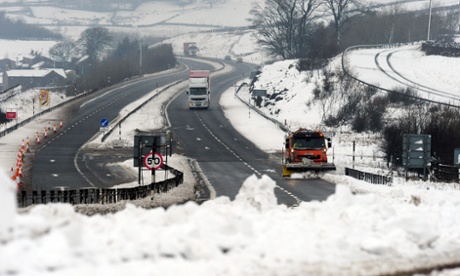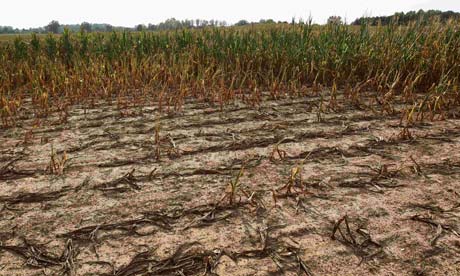 Melting sea ice, exposing huge parts of the ocean to the atmosphere, explains extreme weather both hot and cold.
Melting sea ice, exposing huge parts of the ocean to the atmosphere, explains extreme weather both hot and cold.
Climate scientists have linked the massive snowstorms and bitter spring weather now being experienced across Britain and large parts of Europe and North America to the dramatic loss of Arctic sea ice.

 Environmental Glance
Environmental Glance The neighborhood looks exceedingly normal: single-family homes and apartment buildings packed together, dogs barking from postage-stamp-size lawns, parents hustling down narrow sidewalks to fetch their children from school. But something with very dangerous potential lies below the surface, officials say.
The neighborhood looks exceedingly normal: single-family homes and apartment buildings packed together, dogs barking from postage-stamp-size lawns, parents hustling down narrow sidewalks to fetch their children from school. But something with very dangerous potential lies below the surface, officials say. Did you know that Utah has one of the worst air pollution problems in the country? The impacts are startling: The pollution is making people sick. Living under the smothering summer ozone or winter inversion is a big reality that many families and mothers have to endure.
Did you know that Utah has one of the worst air pollution problems in the country? The impacts are startling: The pollution is making people sick. Living under the smothering summer ozone or winter inversion is a big reality that many families and mothers have to endure. Range Resources, MarkWest Energy and Williams Gas agreed to settle a high profile contamination case in Washington County for $750,000, according to recently unsealed court records. An order to unseal the records was entered Wednesday in Washington County Court of Common Pleas by President Judge Debbie O’Dell-Seneca.
Range Resources, MarkWest Energy and Williams Gas agreed to settle a high profile contamination case in Washington County for $750,000, according to recently unsealed court records. An order to unseal the records was entered Wednesday in Washington County Court of Common Pleas by President Judge Debbie O’Dell-Seneca. The historic drought that laid waste to America's grain and corn belt is unlikely to ease before the middle of this year, a government forecast warned on Thursday.
The historic drought that laid waste to America's grain and corn belt is unlikely to ease before the middle of this year, a government forecast warned on Thursday. In establishing natural gas and fracking as the clean alternative to coal and the “bridge” to a low-carbon future, the natural gas industry has relied on PR to smooth its way. While the most visible anti-fracking campaigns remain regional and local, tied to the politics of exploding water and poisoned wells, gas companies and lobbyists are moving to globalize the debate. Their message: rational environmentalists should embrace gas, because gas will save us from climate change.
In establishing natural gas and fracking as the clean alternative to coal and the “bridge” to a low-carbon future, the natural gas industry has relied on PR to smooth its way. While the most visible anti-fracking campaigns remain regional and local, tied to the politics of exploding water and poisoned wells, gas companies and lobbyists are moving to globalize the debate. Their message: rational environmentalists should embrace gas, because gas will save us from climate change.






























